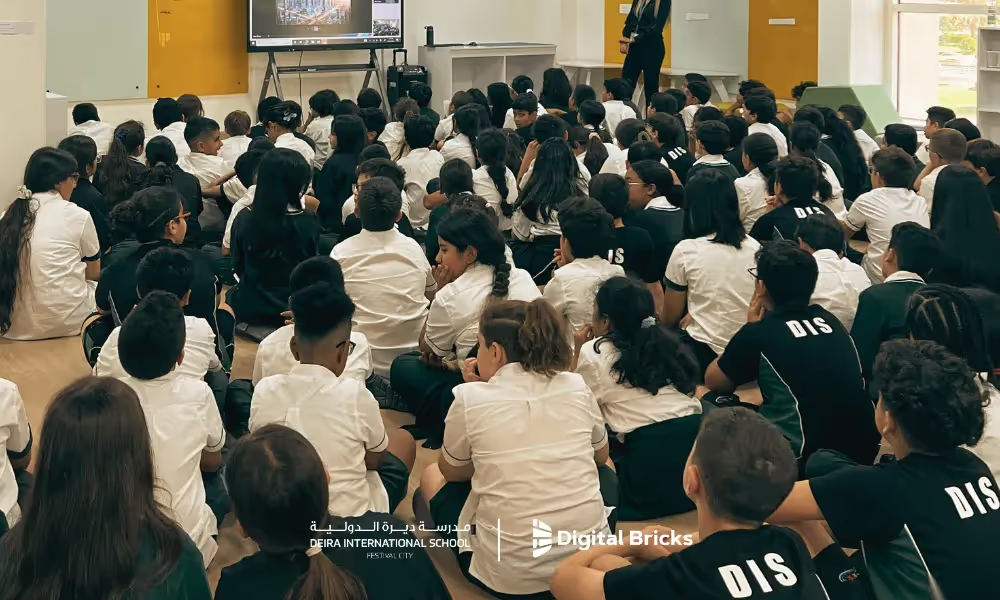
UAE Mandates AI Curriculum in Schools

.avif)


.avif)
In a landmark announcement, His Highness Sheikh Mohammed bin Rashid Al Maktoum confirmed that the UAE will add artificial intelligence as a mandatory subject in all public schools from the 2025–26 academic year. AI will be taught from kindergarten through Grade 12, integrated into existing subjects with age-appropriate lessons, and supported by teacher training and ready-made materials. This historic move makes the UAE one of the first countries globally to introduce AI as a compulsory subject at all school levels, aimed at preparing the next generation for a tech-driven future. Sheikh Mohammed emphasized that the decision is crucial in preparing young Emiratis for a future shaped by digital transformation and technological innovation—not only teaching technical skills but also instilling awareness of AI’s ethical and social dimensions.
This initiative is fully aligned with the UAE’s long-term vision to build a future-ready workforce. The UAE has long made AI a national priority: it was the first country to appoint a Minister for Artificial Intelligence in 2017 and launched the National AI Strategy 2031 to integrate AI across key sectors. The strategy aims for AI to contribute roughly 20% of the UAE’s non-oil GDP by 2031, driving significant economic growth. As Sheikh Mohammed stated, the country is determined to become the world’s most prepared nation for artificial intelligence. In line with the UAE Centennial 2071 goals, leaders have stressed that investing in AI skills and knowledge today is essential for long-term prosperity. The Digital Economy Strategy likewise aims to double the digital economy’s share of non-oil GDP within a decade. By embedding AI education at every level, the UAE is building the local talent pipeline and innovation mindset required to meet these ambitious goals.
The AI curriculum mandate is part of a broader wave of digital transformation across the Emirates. The UAE has invested heavily in AI research and infrastructure, designating Abu Dhabi as a global AI hub and launching partnerships with major tech players to develop cloud and AI labs. The Advanced Technology Research Council (ATRC) accelerates research and development in emerging technologies, while national telecoms and public service providers increasingly embed AI to drive efficiency and creativity. These initiatives are complemented by the schools’ AI program: students who grow up literate in AI will be ready to fuel the UAE’s evolving knowledge economy. As one UAE official put it, building AI skills in children is not just about the future workforce—it’s about empowering them to lead, innovate, and positively impact a world continuously transformed by technology.
Introducing AI education early has far-reaching benefits for both students and national development. Key advantages include:

Embedding AI in early education directly supports national ambitions. By developing a generation with strong digital, analytical, and creative skills, the UAE is investing in its long-term success in sectors like technology, healthcare, and innovation. In the bigger picture, widespread AI literacy nurtures future entrepreneurs and developers who can create homegrown AI solutions, contributing to economic diversification and national resilience.
Hands-on experience with AI tools further stimulates innovation. Activities—from AI-powered storytelling in kindergarten to building simple algorithms by middle school—engage students in practical learning. Research indicates that the ages of 10 to 12 are particularly formative for grasping abstract concepts, making AI projects at this stage especially impactful. Through guided projects, students learn to forecast outcomes, iterate on solutions, and collaborate effectively—core capabilities for success in a digital world. In short, by encouraging children to experiment with data and algorithms, the UAE is nurturing a culture of curiosity, creativity, and critical thinking.
At Digital Bricks, we are proud to play a pivotal role in this transformation. We have contributed to developing and piloting AI curricula for young learners, partnering with local schools to introduce students to AI and machine learning basics.
To support the nationwide rollout, Digital Bricks offers comprehensive frameworks and resources designed to help educators deliver high-quality AI education. These include:
Our commitment to advancing AI education is encapsulated in the whitepaper, “The Impact of AI Curriculum in Early Education: Shaping The Leaders of Tomorrow,” which explores why early exposure to AI is essential for preparing students for the future.
The UAE’s decision to embed AI education from kindergarten through Grade 12 is a bold and visionary step that reinforces the country’s position as a global leader in digital transformation. By aligning its school curricula with broader national AI strategies, the UAE is investing in a generation that will not only use AI tools but also drive innovation and lead in emerging industries. Early AI education nurtures critical thinking, creativity, and ethical awareness—skills that are essential for addressing the challenges and opportunities of the digital age. With partners like Digital Bricks providing the expertise, resources, and support to bring AI learning to life, the UAE is well on its way to cultivating the innovators and leaders of tomorrow.
For more insights, readers can explore Digital Bricks’ whitepaper “The Impact of AI Curriculum in Early Education: Shaping The Leaders of Tomorrow”